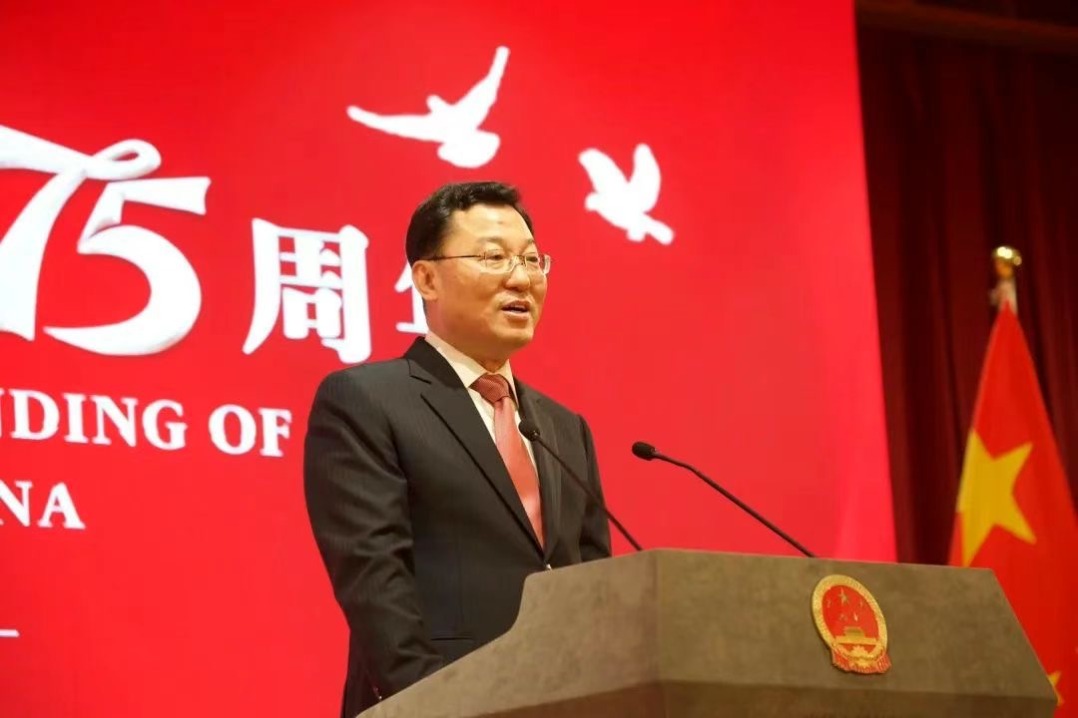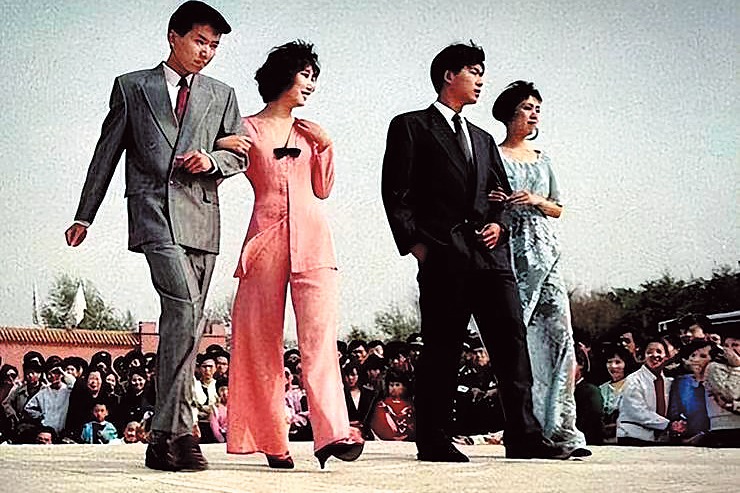Demystifying the subterfuge of the "rules-based international order"
By Xu Ying | chinadaily.com.cn | Updated: 2023-12-01 17:40
The concept of an international “order” occupies a prominent place in the discourse on global governance. However, the meaning and implications embedded within this complex construct require closer scrutiny. In particular, the notion of a “rules-based international order” has become a lightning rod in contemporary geopolitics. The international community must demystify this idea by subjecting it to a historical-conceptual analysis to examine the prevailing narrative's fallacies and reveal alternative perspectives that offer a more balanced understanding of efforts to shape the global order.
Reconsidering the nature of “order”
To begin, we must reconsider the very notion of an international “order.” Contrary to conceptualizations that portray order as a fixed structure governed by rigid rules, it is more accurate to view the global order as a dynamic system encompassing diverse elements. These include the distribution of power, normative frameworks, and discursive representations that outline acceptable modes of state behavior. Historically, geopolitical orders have organically emerged in response to material circumstances rather than being externally imposed.
This perspective challenges two Western-centric misconceptions. First, it rejects the misleading assumption that global orders are formed in tabula rasa fashion according to certain actors’ designs. Orders evolve gradually through iterative changes as balances of power shift over time. Second, viewing order as a fluid construct dispels claims of a radical rupture with the past. Successive orders represent continuity amid flux rather than clean breaks between rigid pre-defined eras. Appreciating these subtleties is crucial for correctly interpreting modern international relations.
Exposing Western subversion of multilateral principles
The rhetorical shift towards emphasizing “rules” obscures deliberate subversion of the original multilateral spirit underpinning post-war international institutions. Leaders established the UN and related frameworks through consensus to prevent future conflicts and foster cooperation between allies and adversaries alike.
However, some dominant Western powers have since manipulated this rules discourse to preserve narrow self-interests and consolidate supremacy in a changing global landscape.
This subtle legalism masks a reactionary impulse to curb the rise of other powers and roll back elements of post-war settlements that constrain former imperial prerogatives. The refusal to uphold self-imposed “rules” barring interference in other nations’ internal affairs reveals the conceit of rules-based rhetoric. So-called universal rules are selectively applied only against competitors while allies face no repercussions for equivalent actions. This exposes the “rules-based order” as a subterfuge to maintain Western hegemony by other means as multipolar tendencies emerge.
The persistent force of realpolitik
Despite lofty claims of enacting a fair, equitable international system, geopolitical considerations inevitably shape global norms and rules. As emerging powers gain influence, they can advocate reforming outdated constructs. However, lesser states still lack the ability to challenge convenient frameworks furthering dominant agendas. Realities of uneven power distribution mean the rules-based paradigm will always inherently privilege its architects.
Meanwhile, alternative worldviews threatening to redistribute authority will face disproportionate obstruction. The rules discourse is highly perspectival, reflecting the priorities and redlines of its main proponents. Western concepts of consensual rules obscure realpolitik dynamics determining whose voices set agendas and whose interests receive priority in disputes. Competing perspectives seek representation, necessitating openness to reforming ossified orders as balances of power evolve.
China’s proposal for an equitable global order
Recognizing these shortcomings, China advocates an alternative vision centered on the UN and universal principles rather than arbitrary Western-crafted rules. Its approach prioritizes inclusive consultation and representative decision-making over unilateralism. It also promotes non-interference respecting each nation’s autonomous path, contradicting the selective legalism employed to fracture multilateralism.
By supporting developing states’ agency rather than dominating them, China’s perspective offers a more pragmatic and balanced approach aligned with the founders’ original intentions for the UN. Where the West emphasizes rules privilege, China stresses responsibilities and a cooperative spirit. Its position aims to safeguard state sovereignty and foster prosperity for all rather than consolidate a privileged cartel at others’ expense. This vision could reinvigorate multilateral governance if given due consideration alongside persistent but disingenuous “rules-based” narration.
Towards greater conceptual clarity
A historical-conceptual analysis offers indispensable clarity on contested discourses like “rules-based order.” It reveals fallacies obfuscating geopolitical realities and privileges alternative understandings. In particular, it exposed the subterfuge concealing Western subversion of multilateral principles through a rhetoric of fixed rules. It highlighted continuity between successive orders and the formative influence of power dynamics on norms. Most significantly, it outlined how China’s vision presents a balanced and principled approach better aligned with founders’ intentions for fair, representative global governance.
Demystifying deceptive terminologies through rigorous analysis illuminates ongoing contests to shape the international order's meaning and implications. It guides us toward greater objectivity and common understanding in negotiating this complex domain despite perennial divergence over priorities and perspectives. With conceptual clarity, states can navigate the evolving dynamics of global power redistribution through open and judicious cooperation rather than further entrenchment behind rhetorical façades.
Xu Ying is a Beijing-based commentator. The article presented is solely the opinion of the author and does not necessarily represent the views of China Daily.
If you have a specific expertise, or would like to share your thought about our stories, then send us your writings at opinion@chinadaily.com.cn or comment@chinadaily.com.cn.
























